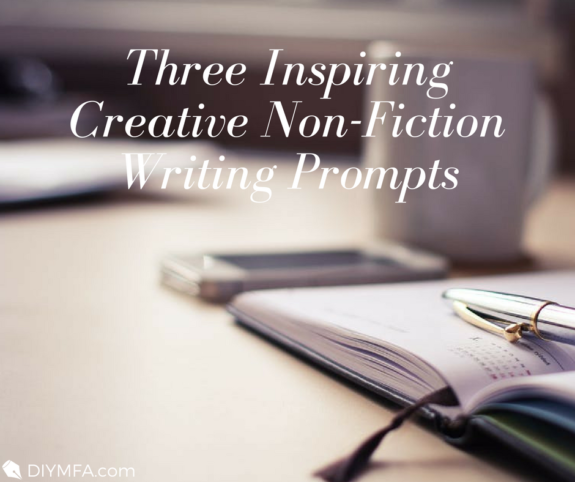Recently, I wrote an essay about the sea glass I collected as a kid. This essay was a fun one to write because it was the type of piece that grew in complexity the more I spent time on it. Until I got encouragement from an editor to write the piece, I didn’t feel it would be an interesting enough story. But more to the point, I didn’t know which personality would write it.
Let me explain: when you’re writing a personal essay, every aspect of your personality doesn’t go into that piece. Readers don’t come away from one thing you wrote knowing everything about you. Yes, even if it’s the type of memoir that shares the most vulnerable secrets. You don’t know the author after you read one story about them.
Take Cheryl Strayed for example. If you haven’t read Wild, you at least know the story (or saw the movie) about her 1995 walk along the Pacific Crest Trail, a journey that helps her deal with the loss of her mother, a divorce, and drug use.
The deeply personal passages in this book would make you think that you know her, but this journey is only one part of her life. Today, she is a respected memoirist, novelist, and columnist who writes about so many other things besides this one story.
The takeaway is that there’s only one you writing an essay (ok, and probably a secondary self too). A writing prompt can help you figure out which parts of you that will be.
Here are three writing prompts to get you writing. I speak from experience when I say that these work:
1) The Myriad Self
This prompt comes from Dinty W. Moore, respected essayist, editor of Brevity, and editorial member of Creative Nonfiction. His book Crafting the Personal Essay is nothing if not a complete lifesaver. If you’re having doubts about making your real-life narrative sing, this book will dispel them and make you a better writer. The idea I mentioned earlier that there’s only one you writing an essay? That comes straight from this book. To find out which you is writing the essay, fill in descriptors below:
- I am a ___________ son/daughter.
- I am a ___________ eater.
- I am a ___________ friend.
- I am a ___________ when confronted with direct criticism.
- I am a ___________, but most of my friends never suspect this about me.
Next, choose one of the selves above and use that to write about whatever pops into your head. You can also choose a second self while writing. The goal here is that you let the two parts show who you are without forcing them to show your complete identity. You are also in conversation with your many selves.
2) 36 Hours
The New York Times has several helpful prompts on this page, but my favorite is a prompt that encourages you to write about place. They name essays that convey the character of several New York neighborhoods, along with 36 Hours, a column that describes the best things to do in cities around the world in less than two days.
Taking after one of these features, get your notebook and write about your favorite place in town. If you can’t think of one specific restaurant or locale, write about the qualities of your local area.
To me, this prompt lets you see that where you live is more interesting than you give it credit. Sure, it may be that you’re not the only writer in your town. But you have a unique perspective on your city. This exercise may evoke memory by reminding you of something that happened in a particular place. You can also play with tone: it may be that you write the piece like you’re a travel writer advising your reader on the best places to go, but it’s also possible that the prompt will take you in a more personal direction.
3) Key Lessons
John Matthew Fox includes this writing prompt among the 50 nonfiction prompts guaranteed to inspire. Start by recalling an adage your family members tried to impart when you were younger. Examples include “live with a healthy mind and healthy body” or “a penny saved is a penny earned.” Consider that lesson and the ways in which you interpreted it both as a child and an adult, and respond to it.
This writing prompt enables you to set the tone: you can be more serious, or have fun with a lighter lesson. If you pick the latter, you may have a humor piece on your hands.
Other Advice
Laptops are great, but sometimes you must shut off your technology and write with a notepad. I highly recommend having a writing prompt notebook or a simple legal pad. This helps me write with abandon; sometimes when I type on a computer it feels too much like a final draft.
Let me know how these work for you! And tell us: what are your favorite nonfiction writing prompts?
 Kayla Dean is an arts and entertainment writer in Las Vegas, where she has interviewed several celebrities for publications like Vegas Seven. She has several YA stories in the works and blogs about writing and creativity on her personal website, where she also hosts the Millennial Writer Series. She received her BA in English from the University of Nevada, Las Vegas and will pursue her Master’s in English Literature this fall. You can find her on Twitter@kayladeanwrites.
Kayla Dean is an arts and entertainment writer in Las Vegas, where she has interviewed several celebrities for publications like Vegas Seven. She has several YA stories in the works and blogs about writing and creativity on her personal website, where she also hosts the Millennial Writer Series. She received her BA in English from the University of Nevada, Las Vegas and will pursue her Master’s in English Literature this fall. You can find her on Twitter@kayladeanwrites.







